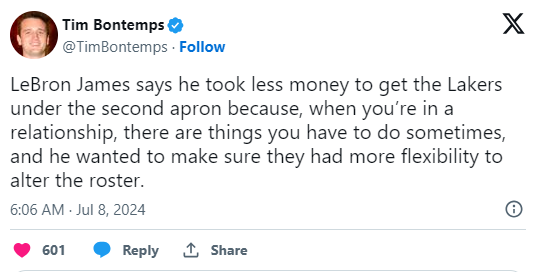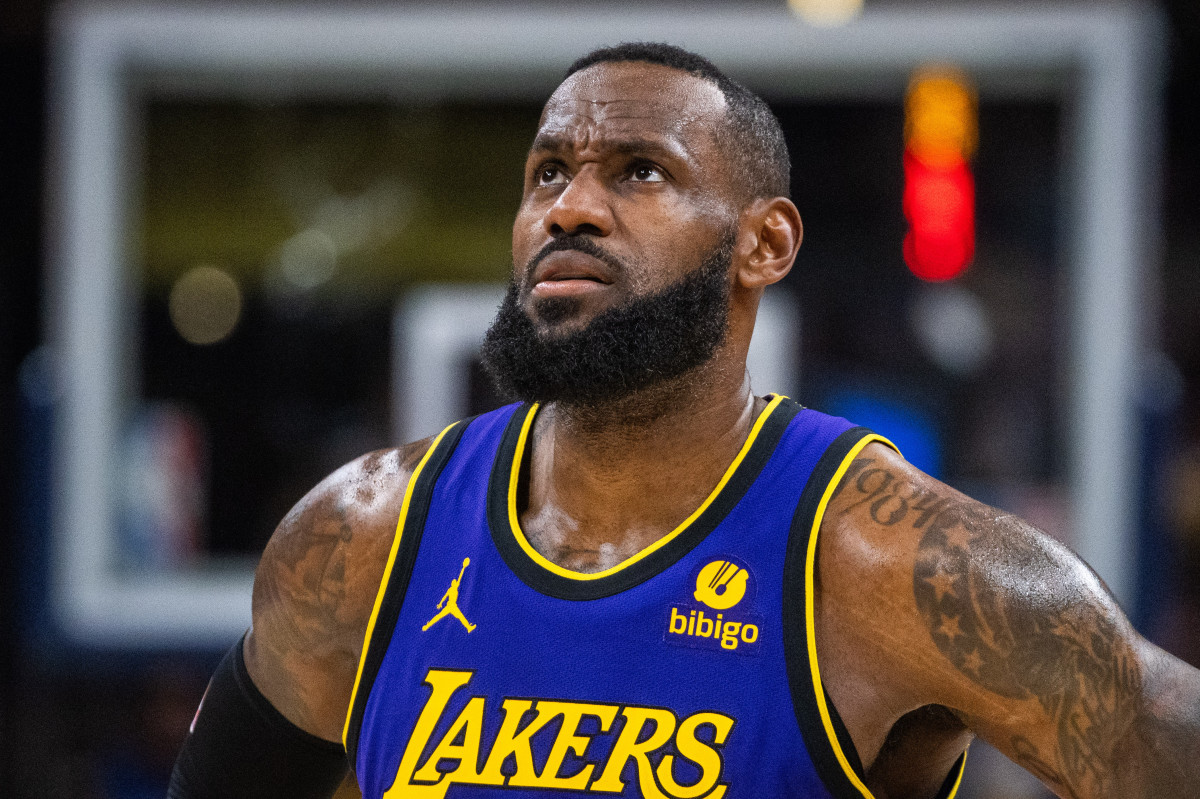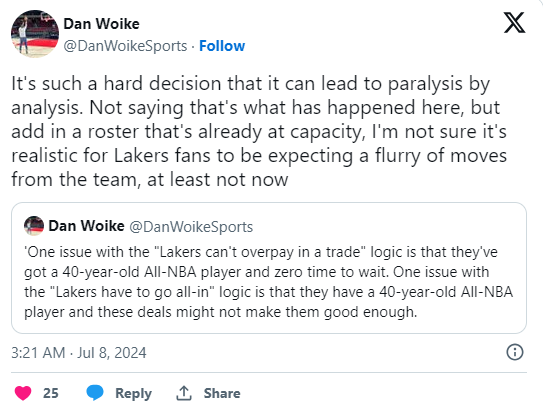LeBron James signed a two-year, $101.3 million contract with the Los Angeles Lakers this offseason, taking a slight pay cut from the two-year, $104 million deal he was eligible to sign.
That allowed the Lakers to stay below the dreaded, and prohibitive, second luxury tax apron. James told reporters on Sunday that reducing his pay was all about giving the Lakers flexibility to improve the roster:

Bringing aboard JJ Redick as the new head coach has been the biggest story for the Lakers in a very quiet offseason, especially since James’ return was widely expected. Thus far, the team’s major offseason additions are draft picks Dalton Knecht and James’ son, Bronny James. The Lakers haven’t brought in any free agents or swung any trades.

The former route was always going to be difficult. With the team pushed right up against the second apron already, they would have to offload some salaries just to use their $5.2 million taxpayer midlevel exception and remain under the apron.
Jovan Buha and Shams Charania on The Athletic reported on July 6 that “Gary Trent Jr. and Spencer Dinwiddie are two names to watch for if the Lakers clear enough space to use their taxpayer midlevel exception.”
Granted, a bigger trade could be in the works, but that would assuredly require the Lakers parting with a lot of future draft capital, itself a risky proposition given that James is 39 years old and Father Time will surely catch up with him at some point:

Regardless, staying under the second apron is vital. It essentially has become a hard cap for teams, given the penalties for exceeding it. As Charania and Buha noted, “teams above the second apron cannot trade first-round picks seven years in the future, cannot trade cash in a deal, lose their midlevel exception, are limited to 100 percent salary-matching in trades and cannot combine multiple players in a deal, among several other restrictions.”
In other words, if you exceed the second apron, your team better be just about perfect as is and in good position to win multiple titles. Otherwise, building out a solid team becomes far more difficult.





